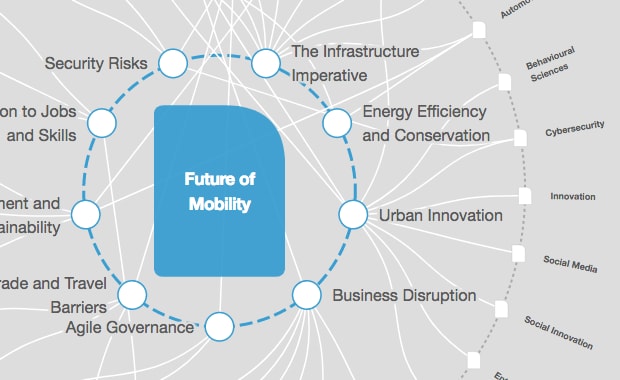1,500 endangered languages could disappear by the end of the century

With 1,500 languages at risk of being lost, how can we help preserve them? Image: Unsplash/Towfiqu barbhuiya

Explore and monitor how Mobility is affecting economies, industries and global issues

Get involved with our crowdsourced digital platform to deliver impact at scale
Stay up to date:
Mobility
Listen to the article
- Around 1,500 known languages may no longer be spoken by the end of this century.
- Current levels of language loss could triple in the next 40 years.
- Greater education and mobility marginalize some minor languages.
- One language per month could disappear, without intervention.
There are 7,000 documented languages currently spoken across the world, but half of them could be endangered, according to a new study. It is predicted that 1,500 known languages may no longer be spoken by the end of this century.
Researchers from The Australian National University (ANU) analyzed thousands of languages to identify factors that put endangered ones at risk. The findings highlight a link between higher levels of schooling and language loss, as regionally dominant languages taught in class often overshadow indigenous tongues.
A second factor exacerbating the threat to endangered languages is the density of roads in an area. While contact with other languages can help preserve indigenous ones, exposure to the wider world may not.
“We found that the more roads there are, connecting country to city, and villages to towns, the higher the risk of languages being endangered. It’s as if roads are helping dominant languages ‘steam roll’ over other smaller languages,” said Professor Lindell Bronham, co-author of the study.
Lost language diversity
The factors identified by the study could help explain why just a handful of languages dominate global communication.
Mandarin Chinese has the most native speakers, which is unsurprising given China’s huge population, but English is the world’s most widely used language with around 1.35 billion speakers.
The study, published in Nature, Ecology and Evolution, shows the extent to which the world’s language diversity is under threat. It estimates the equivalent of one language is currently lost within every three-month period. But levels of language loss could actually triple in the next 40 years, with at least one language per month disappearing unless measures are taken.
“When a language is lost or is ‘sleeping’ as we say for languages that are no longer spoken, we lose so much of our human cultural diversity,” said Professor Bromham.
“Many of the languages predicted to be lost this century still have fluent speakers, so there is still the chance to invest in supporting communities to revitalize indigenous languages and keep them strong for future generations.”
Can technology help save indigenous languages?
While past studies have blamed the digital realm for causing the demise of some indigenous dialects - by focusing attention on a few major languages at the expense of smaller ones - today’s tech-entwined world could hold a solution.
There are Internet sites and apps aplenty to help new speakers learn languages like Spanish, English and Mandarin, but these now extend to specialist apps designed to teach endangered languages or help preserve them. Ma! Iwaidja, for example, is an app that enables those working with speakers of the Iwaidja indigenous Australian language to record words, phrases and translations. It also contains a dictionary and a word maker to help users tackle grammar and syntax.
Another initiative is the Rosetta Project, a global collaboration of language specialists and native speakers working to build an open-access digital library of human languages.
The collection contains around 100,000 pages of documents and recordings for more than 2,500 languages microscopically etched on nickel disks for long-term storage. The project draws attention to the “drastic and accelerated loss of the world’s languages” and could help preserve many endangered and “sleeping” languages for future generations.
The UNESCO International Decade of Indigenous Languages (IDIL2022-2032), which begins this year, also aims to engage the global community with the critical issue of language loss.
The 10-year initiative continues the work of the UN’s 2019 International Year of Indigenous Languages. As part of its Global Action Plan, IDIL2022-2032, it is creating a network of international stakeholders focused on protecting the rights of indigenous people to revitalize and preserve their languages.
What's the World Economic Forum doing about diversity, equity and inclusion?
Don't miss any update on this topic
Create a free account and access your personalized content collection with our latest publications and analyses.
License and Republishing
World Economic Forum articles may be republished in accordance with the Creative Commons Attribution-NonCommercial-NoDerivatives 4.0 International Public License, and in accordance with our Terms of Use.
The views expressed in this article are those of the author alone and not the World Economic Forum.
Related topics:
The Agenda Weekly
A weekly update of the most important issues driving the global agenda
You can unsubscribe at any time using the link in our emails. For more details, review our privacy policy.
More on Jobs and the Future of WorkSee all
Roman Vakulchuk
April 24, 2024
Eli Joseph
April 19, 2024
Kate Whiting
April 17, 2024
Juliana Guaqueta Ospina
April 11, 2024
Victoria Masterson
April 9, 2024









